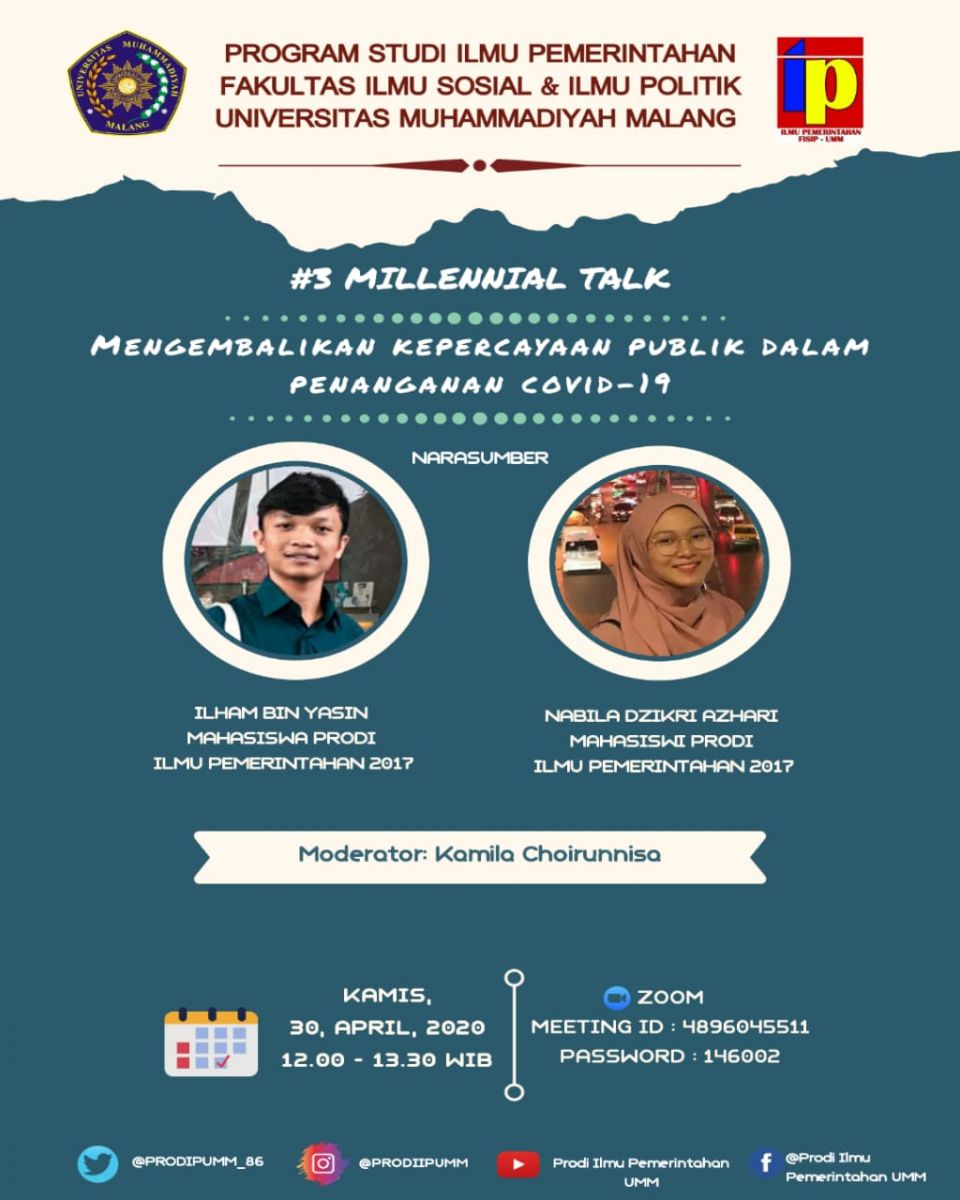
Millennial Talk "Restoring Public Trust in Handling Covid-19". (Photo: Special)
Malang, May 02, 2020. On April 30, 2020, UMM IP Study Program again held the 3rd Millenial Talk discussion series. The resource persons in this discussion were Nabila Dzikri Azhari and Ilham bin Yasin and moderated by Kamila Choirunnisa. All three are students of Government Science class 2017. The speakers focused on public trust in this discussion, namely in the Policy Maker (Government). Iham and Nabila classify society as divided into two: first, there is an upper-middle-class community, and second, a lower-middle-class community. Currently, the Government is still unable to prioritize which policies should be carried out. The first is a policy to boost the economy during this pandemic or prioritize public health.
Government Regulation Number 21 of 2020 has been enacted and revealed in detail in the Regulation of the Minister of Health (Permenkes) of the Republic of Indonesia Number 9 of 2020 concerning Guidelines for Large-Scale Social Restrictions in the Context of Accelerating Handling of Corona Virus Disease 2019 (Covid-19). However, from this regulation, why do you have to get the central Government's approval and wait for the PSBB to be implemented? If we look in the mirror from Wuhan, which was first hit by this pandemic, they did not wait from the center. Even the central Government immediately decided which areas had been affected by direct lockdown. However, suppose the Indonesian Government wants to maintain public health. There is no need to wait for the center anymore, and the local Government can also assist such as medical equipment and food. However, what is still unfortunate is that the Government still enforces flights for business people to enter and leave Indonesia for the country's economy. In contrast, people who have migrated and have lost their jobs are prohibited from returning to their regions. There should be communication between the central Government and local governments.
News from social media and print makes people feel afraid of this coronavirus and someone infected or positive for covid-19. Those affected by the coronavirus should be given support to recover. It causes their immune system to increase, not to be hated because this is not a disgrace. The World Health Organization (WHO) also provides directives so that physical distancing does not become social distancing, which means keeping a distance, not being social. Information provided by several media can damage people's minds and make people restless. Finally, they voiced the message that both the Government and the community must trust each other and work according to their respective capacities; hopefully, this epidemic will pass soon.
